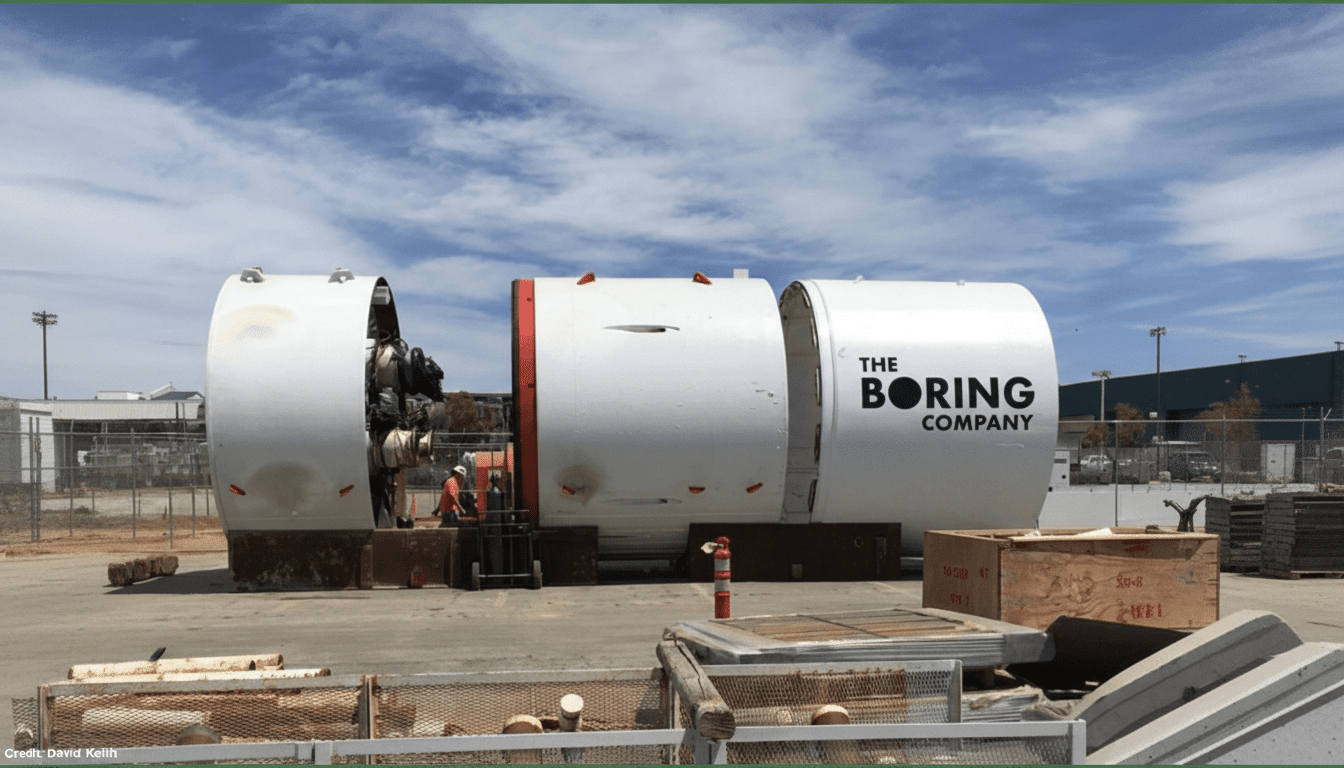The Boring Company received nearly 800 violations in expanding its Las Vegas tunnel network and violations of the provisions pledging basic construction employment to workers, according to Nevada environmental regulators. Records cited by investigative reporting showed that dozens of the purported violations occurred after the company agreed to corrective terms aimed at putting the project on a compliant track.
What Nevada Regulators Say Happened at Tunnel Sites
Work crews milled, dug, and discharged untreated water on public streets without permits; failed to install silt fences and other erosion controls on the property as promised or when necessary to protect sensitive areas from runoff; and tracked mud and sediment from construction zones onto residential roadways.

Those activities are subject to construction stormwater rules that are intended to keep sediment, debris, and pollutants from being swept into public waterways and storm drains.
The state’s count alone is nearing 800 separate instances, according to a review of state records by ProPublica. Significantly, almost 100 of these were after a formal accord aimed at getting the company back on track. For regulators, that pattern implies not only a series of missteps but also a failure to comply consistently with a written plan for preventing stormwater pollution — an anchor requirement under Nevada’s Clean Water Act construction permit.
The environmental violations are pretty much the same as any big earth-working civil contractor should be aware of, if not terrified of: preventing track-out with stabilized construction entrances; installing and maintaining silt fencing in advance of working dirt; managing dewatering so that turbid or contaminated water is not left to run off to streets, catch basins, or washes. However, if these steps are skipped, sediment and construction refuse may enter the storm system with the next wind or rain.
How Nevada Regulators Calculated the Penalties Assessed
The company could have been on the hook for in excess of $3 million if violations were not lumped together, NDEP said. Nope, instead the agency bucketed similar violations and fined it $242,800, telling the D.C. Circuit the collective cycle is still counterproductive but accounts for overlapping conduct. Bunching violations together is not unusual in construction enforcement, particularly when a regulator is trying to strike a balance between holding someone accountable and finding a reasonable way to correct it.
In addition to the fine, enforcement also usually sets in motion a set of targeted steps to correct issues: changing the project’s stormwater plan, retraining crews and subcontractors, documenting daily inspections, and presenting evidence that repairs or new controls have been put into place (such as sediment basins and street sweeping logs).
If problems persist, regulators can ratchet up to stop-work orders, a move that boosts schedule and cost risk for the developer.
Why Stormwater Rules Matter In Las Vegas
Compliance is a difficult thing to achieve in Las Vegas. Heavy disturbance of the local soils, combined with highly infrequent storms in a dense urban area, can allow sediment to be quickly moved from a job site into the storm system. From there, any runoff can make its way to desert washes and, finally, the Las Vegas Wash, an important waterway that flows into Lake Mead, the region’s main source of drinking water.

Construction sites counteract those risks with a layered approach: stabilized entrances to minimize track-out; silt fences to catch sediment; inlet protection for storm drains; controlled dewatering in trenches and tunnels; and routine sweeping of debris from public rights of way. They are basic measures, but failure to implement and maintain them uniformly can lead to a snowballing problem across a fast-moving, multi-site project.
Implications For The Vegas Loop Expansion
The Boring Company’s Las Vegas business, Yonah Freemark of the Transit Center said, is intended to expand from a small establishment system that will open this month to a citywide network of 68 miles and more than 100 planned stations, according to local planning documents. Such scale calls for NDEP to work with the City of Las Vegas, Clark County, and a host of other oversight agencies as varied as those responsible for roads, utilities, and public safety.
It’s not the only headwind of regulatory friction. Work on a segment of the tunnel that will link to the airport was briefly shut down this week after a worker was pinned between two long pipe sections, injuring him; Nevada’s workplace safety agency is investigating. Although unrelated to the environmental case, safety and environmental performance often run side by side in determining whether the project can maintain an aggressive time schedule.
Under the loop expansion, in practice, these alleged violations could manifest as increased inspection regimes, more regular reporting, and explicit preconditions before new segments or stations are issued permits. Big owners — like transportation agencies and convention authorities — often need to see that certain compliance milestones are hit before they’ll sign off on more phases.
How This Case Fits Broader Construction Industry Patterns
Stormwater enforcement is routine in major construction programs, but the raw numbers cited here are notable. Contractors typically address early notices by revamping site controls, hiring environmental managers, and increasing the oversight of subcontractors. Repeat violations in the wake of a corrective agreement, NDEP alleged, tend to draw tougher regulatory responses because they indicate systematic problems as opposed to a few missed marks.
Other major infrastructure builders have emulated the practice of using third-party environmental monitors to avoid such pitfalls, a strategy that regulators often look upon with favor. With dozens of active access points feeding an urban tunneling program, that sort of independent oversight is crucial for immediate course corrections when controls fail or field conditions change.
What To Watch Next For The Las Vegas Tunnel Project
NDEP’s enforcement path most often results in agreed orders that establish obligations for corrective activities, training, and reporting. Onlookers will wait to see whether the agency imposes increased monitoring, demands more performance bonds, or links future approvals to a clean compliance record over an agreed-upon period.
The Boring Company did not provide a detailed public response to the new allegations. Regulators, meanwhile, are sending a message that smaller combined penalties shouldn’t be interpreted as leniency if behavior remains the same. For a project that was constructed with the promise of fast deployment, the next act may rely as much on environmental discipline as engineering prowess.

